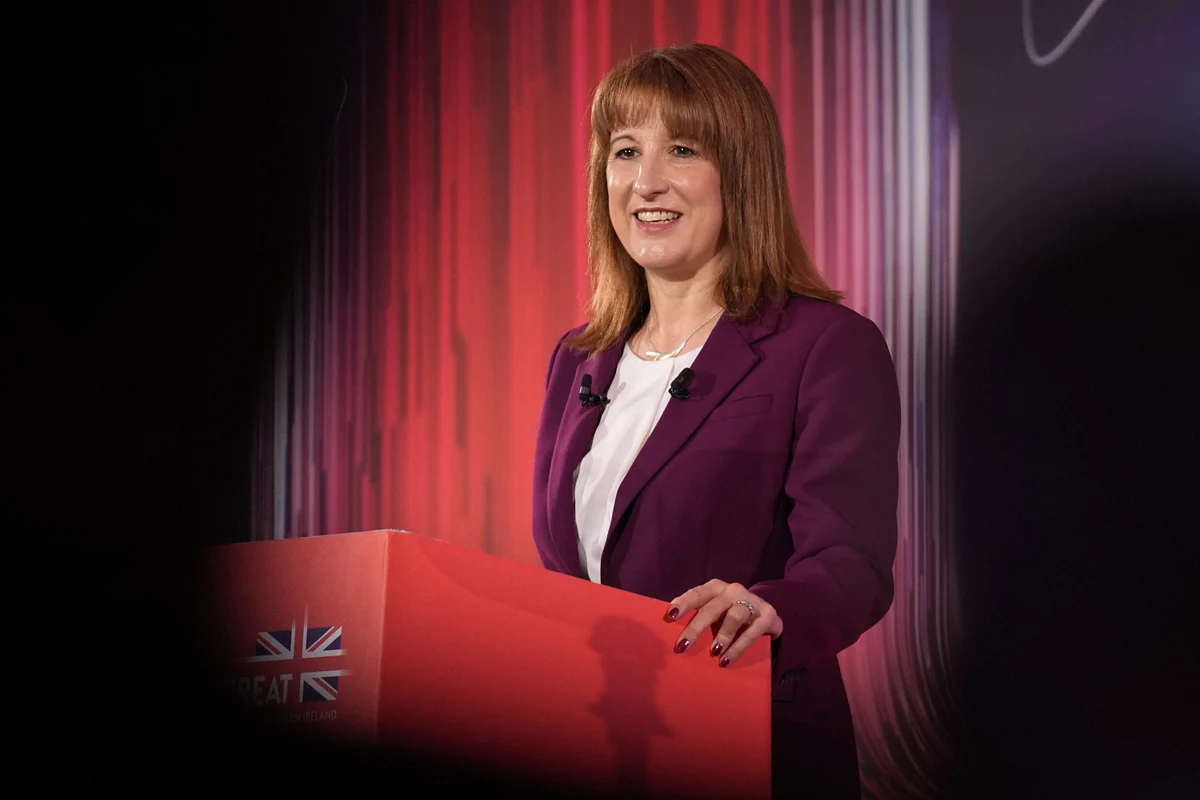Copyright standard

Rachel Reeves has said plans to scrap paperwork and “arbitrary rules” for thousands of UK businesses would save firms almost £6 billion a year by the time of the next election. She set out a package of measures aimed at boosting lacklustre economic growth at the Regional Investment Summit in Birmingham on Tuesday. The gathering of business leaders and investors came after more gloomy news emerged for the Chancellor as Government borrowing in September hit the highest level for the month in five years. The data from the Office for National Statistics (ONS) piles more pressure on Ms Reeves ahead of the November 26 Budget, in which she will have to fill a black hole estimated at around £50 billion by some economists. Ms Reeves acknowledged the economy is “not working as it should” as she vowed to use next month’s statement to “take the necessary steps” to secure stability. Addressing the summit at the Edgbaston Stadium, she detailed measures to reform the company merger process, regulations for drones and reforms for artificial intelligence (AI). She said a cross-economy AI “sandbox” would allow firms to develop new products “under supervision by regulators”. This would speed up the approval of AI for use in areas including “legal services, planning assessments and advanced manufacturing”. The Civil Aviation Authority will set out steps towards launching commercial drone operations which could allow unmanned aerial vehicles to be widely used for tasks from “surveying sites for development to delivering blood supplies for the NHS”. Panels reviewing company mergers will be reformed to “provide greater certainty on whether transactions will be subject to merger control”. Ms Reeves confirmed plans to create simpler corporate reporting rules for more than 100,000 businesses, including removing the need for small business owners to submit lengthy director reports to Companies House. She said: “Our mission is clear, to create the right environment for investment through our regulatory reforms, to crowd in capital through our public financial institutions, and to break down silos to collaboration on local projects, supporting innovation and growth throughout the UK.” The investment committed as part of the regional summit would lead to the creation of “thousands of jobs” and “homes and services for people in their daily lives”, the Chancellor said. “I do not and I will not take for granted the confidence put in Britain by investors,” she said. “I will not squander that trust. “I know that there is further to go until we have delivered economic growth in every part of Britain. Growth that is felt in every part of Britain. We will go further to boldly regulate for growth, not to hold business back with arbitrary rules.” Ms Reeves accused previous Tory governments of leaving “parts of our country out from investment”. She highlighted investment in regional growth projects, including £6.5 billion from US property company Welltower, creating thousands of new beds in elderly facilities, and the acquisition of land in Harwell East in south Oxfordshire by the Crown Estate, with the potential to build new lab and manufacturing space and up to 400 homes. The National Wealth Fund will also provide £104 million to finance onshore and offshore wind projects in Norfolk and Orkney, as well as to build a heat network in Hull. Business Secretary Peter Kyle, meanwhile, noted that had the UK maintained its pre-2008 trend growth rate “and nothing else had changed – no financial crisis, no pandemic, no Brexit”, it would have 21% higher GDP by now. Labour had inherited a “national growth emergency” from the Tories, he said, which “requires a national response matching the urgency, scale and significance of Britain’s continuing economic growth challenge”. The Government pledged earlier this year to reduce the administrative cost of regulation by 25% by the end of the parliament. Ms Reeves said this target will save UK firms almost £6 billion per year. The latest plans, together with cuts to red tape announced since March, are expected to contribute £1.5 billion to the savings target. It comes on top of previous commitments to tear up regulation holding back certain industries. The Chancellor’s “Leeds reforms”, unveiled in July, promised the biggest package of changes to regulation on the financial sector in a decade. It included reforming the bank ring-fencing regime and reducing burdensome regulation in the City in order to reintroduce “informed risk-taking” into the financial system. The Government has also been pushing forward reforms to the planning system to help “get back to building in Britain”.



